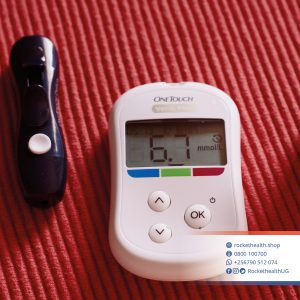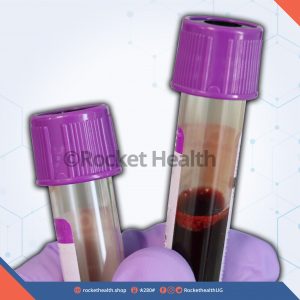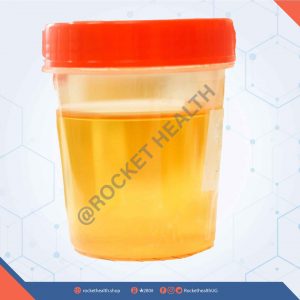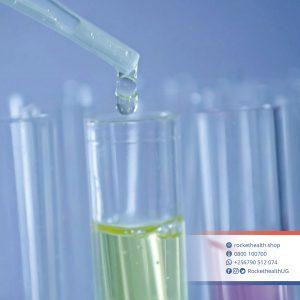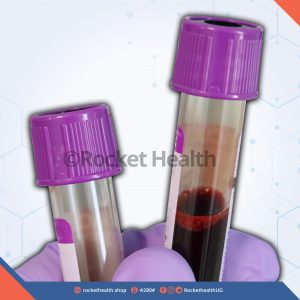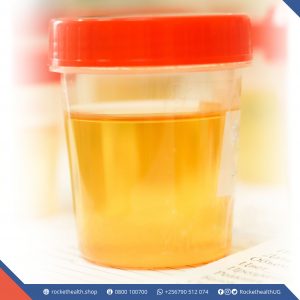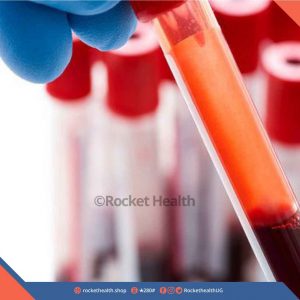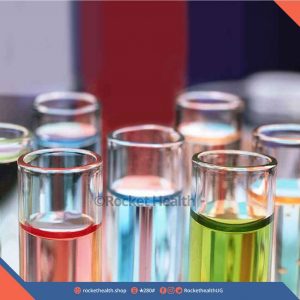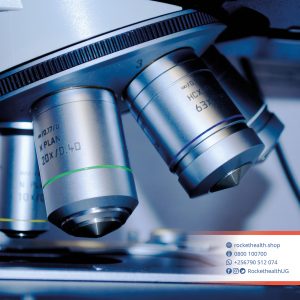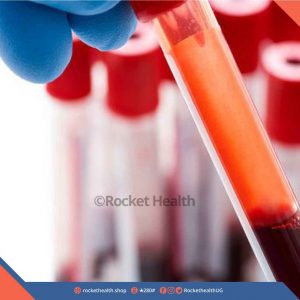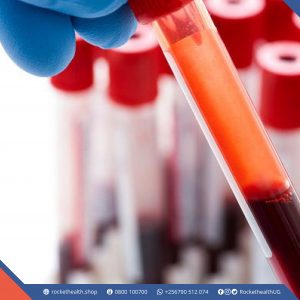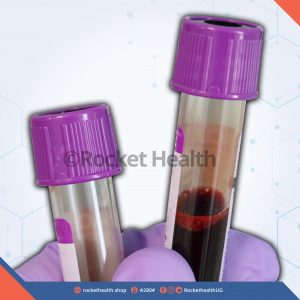No products in the cart.
FASTING BLOOD SUGAR
A test done to detect or monitor diabetes condition by measuring the amount of sugar (glucose) in the blood after having no meal for at least 8 hours.
Blood.
Inform your doctor if you are on any medications, have any allergies or underlying medical conditions before your Fasting Blood Sugar. Fasting blood sugar test is done after you fasted (without eating anything) for a whole night or for 8 to 12 hours. Usually, the blood is drawn in the morning after overnight fasting. Drinking water is not prohibited.
A fasting blood sugar (FBS) test is used to measure the amount of glucose (sugar) present in your blood after fasting for a whole night or for 8 hours. Glucose is the primary energy source for the body’s cells and the only energy source for the brain and nervous system. A steady supply must be available for use, and a relatively constant level of glucose must be maintained in the blood.
UGX 8,000FASTING BLOOD SUGAR
UGX 8,000RANDOM BLOOD SUGAR (RBS)
This is test that measures blood glucose regardless of when you last had a meal. Random testing is useful because glucose levels in healthy people do not vary widely through out the day so glucose levels that vary widely may mean a problem.
Blood.
No specific patient preparation protocol required. Inform your doctor if you are on any medications or have any underlying medical conditions or allergies before undergoing this test.
Glucose is the primary energy source for the body’s cells and the only energy source for the brain and nervous system. A steady supply must be available for use, and a relatively constant level of glucose must be maintained in the blood. A random blood sugar test is used to measure the amount of glucose (sugar) in your blood without any fasting conditions. In this test, the blood is drawn randomly at any point of time in a day.
UGX 8,000RANDOM BLOOD SUGAR (RBS)
UGX 8,000BLOOD GROUPING
Test that shows what type of blood you carry (A, B, AB and O) including Rh factor. Knowing your blood type enables safe blood donation and transfusion.
Blood.
No specific patient preparation protocol required. Inform your doctor if you are on any medications or have any underlying medical conditions or allergies before undergoing this test.
Blood grouping detects the presence or absence of these antigens to determine a person’s ABO blood group and Rh type. Blood groups are based on the markers (specific carbohydrates or proteins) or antigens on the surface of red blood cells (RBCs). Two major antigens or surface identifiers on human RBCs are the A and B antigens. Another important surface antigen is called Rh. People whose red blood cells have A antigens are in blood group A, those with B antigens are group B, those with both A and B antigens are in group AB, and those who do not have either of these markers are in blood group O. If the Rh protein is present on the red blood cells, a person’s blood type is Rh+ (positive); if it is absent, the person’s blood is type Rh- (negative).
UGX 10,000BLOOD GROUPING
UGX 10,000MALARIA BLOODSLIDE + RDT
These are tests used to diagnose malaria. All suspected cases of malaria are confirmed using either microscopy or a rapid diagnostic test.
Blood.
Inform your doctor if you are on any medications or have any underlying medical conditions or allergies before undergoing this test. For this test, fasting for at least 8 to 12 hours is recommended.
Malaria is an infectious disease caused by Plasmodium parasites. These parasites are primarily spread by the bite of infected female Anopheles mosquitos.
UGX 10,000MALARIA BLOODSLIDE + RDT
UGX 10,000URINALYSIS
A urinalysis is a lab test used to detect cells and substances in the urine. it is used to diagnose urinary tract infections, kidney disorder, diabetes and other conditions.
Urine.
No specific patient preparation protocol required. Inform your doctor if you are on any medications or have any underlying medical conditions or allergies before undergoing this test.
A urinalysis is a group of physical, chemical, and microscopic tests. The tests detect and/or measure several substances in the urine, such as byproducts of normal and abnormal metabolism, cells, cellular fragments, and bacteria.
UGX 10,000URINALYSIS
UGX 10,000Lab Results Tele-Consultation
Lab Results Tele-Consultation is meant for customers who order lab tests services and want our rocket health doctors to call and explain for them the results.
UGX 10,000Lab Results Tele-Consultation
UGX 10,000BRUCELLA AGGLUTINATION TEST
This a screening test for the diagnosis of brucellosis in the human body.
Blood.
No specific patient preparation protocol required. Inform your doctor if you are on any medications or have any underlying medical conditions or allergies before undergoing this test.
Brucellolis is a zoonotic disease (disease that attacks both humans and animals), caused by different types of the brucella bacteria. When humans come in contact with an infected animal or animal products that are contaminated with Brucella, brucellosis may result. Most human infections are occupational. Infection is generally via skin wounds, but the organisms can also be inhaled. Another common route of Brucella infection is eating or drinking infected dairy products and (meat)that have not been pasteurized.
UGX 15,000BRUCELLA AGGLUTINATION TEST
UGX 15,000BLOOD PREGNANCY TEST (HCG QUALITATIVE)
A blood test that checks for the hCG (human chorionic gonadotriphin) hormone in your blood that is produced during pregnancy.
Blood.
No specific patient preparation protocol required. Inform your doctor if you are on any medications or have any underlying medical conditions or allergies before undergoing this test.
Human chorionic gonadotropin (hCG) is a hormone produced by the placenta of a pregnant woman. HCG can be detected in blood samples after 8-11 days of conception. The levels of HCG doubles continuously for every 48-72 hours and the peak levels can be observed during 8-11 weeks after conception.
UGX 15,000BLOOD PREGNANCY TEST (HCG QUALITATIVE)
UGX 15,000STOOL ANALYSIS
These are series of stool tests used to check for digestive tract infection, viruses, bacteria, poor nutrient absorption or cancer.
Stool.
No specific patient preparation protocol required. Inform your doctor if you are on any medications or have any underlying medical conditions or allergies before undergoing this test.
For a stool analysis, a stool sample is collected in a clean container and then sent to the laboratory. Laboratory analysis includes microscopic examination, chemical tests, and microbiologic tests. The stool will be checked for color, consistency, amount, shape, odor, and the presence of mucus. The stool may be examined for hidden (occult) blood, fat, meat fibers, bile, white blood cells, and sugars called reducing substances. The pH of the stool also may be measured. A stool culture is done to find out if bacteria may be causing an infection.
UGX 15,000STOOL ANALYSIS
UGX 15,000SYPHILLIS (TPHA)
This blood test is used to check for presence of the bacteria that causes syphilis.
Blood.
No specific patient preparation protocol required. Inform your doctor if you are on any medications or have any underlying medical conditions or allergies before undergoing this test.
Syphilis is an infection caused by the bacterium Treponema pallidum that is most often spread by sexual contact, such as through direct contact with a syphilis sore (chancre), a firm, raised, painless sore. The most common syphilis tests detect antibodies in the blood that are produced in response to a T. pallidum infection.
UGX 15,000SYPHILLIS (TPHA)
UGX 15,000SPUTUM ZN-STAIN
Laboratory test performed on a sample of your sputum to help diagnose if you have TB. A culture is another kind of test that may be done to detect the presence of TB bacteria.
Blood.
No specific patient preparation protocol required.
Mycobacterium tuberculosis (the cause of tuberculosis) can be identified using a staining technique called the Zhiel-Nielsen stain. This test makes it possible to visualise the organism in the microscope by staining it basing on the properties of its cell wall.
UGX 15,000SPUTUM ZN-STAIN
UGX 15,000Typhoid (blood) test
This is a blood test used to check for Typhoid fever.
Blood.
No specific patient preparation protocol required. Inform your doctor if you are on any medications or have any underlying medical conditions or allergies before undergoing this test.
Typhoid is a systemic disease characterised by fever and abdominal pain caused by the bacterium Salmonella typhimurium (S. typhi). The bacterium lives in the intestines and bloodstream of humans. Typhoid is spread by eating or drinking food or water contaminated with the feces of an infected person
UGX 15,000Typhoid (blood) test
UGX 15,000COMPLETE BLOOD COUNT
Test that measures several components and features of your blood and is used to evaluate your overall health and check for many disorders like anemia, infection, leukemia.
Blood.
No specific patient preparation protocol required. Inform your doctor if you are on any medications or have any underlying medical conditions or allergies before undergoing this test.
This test is used to determine general health status, screen for disorders and evaluate nutritional status. It can help diagnose conditions such as anemia, blood cancers and infections. The complete blood count (CBC) is a test that measures the cells that circulate in blood. Blood consists of three types of cells suspended in a fluid called plasma: white blood cells (WBCs), red blood cells (RBCs), and platelets (PLTs). They are produced and mature primarily in the bone marrow and are then released into the bloodstream as needed. The readings vary with sex, age, physiological state, and general health.
UGX 20,000COMPLETE BLOOD COUNT
UGX 20,000
Get fast, reliable lab tests done with Rocket Health Laboratory in Kampala. We collect samples right from your home or office, deliver them to our lab for processing and share the results on E-mail or WhatsApp making it easy and convenient.
Whether you need routine tests, wellness checks, or specialised diagnostics, our professional technicians ensure accuracy and timely results.

